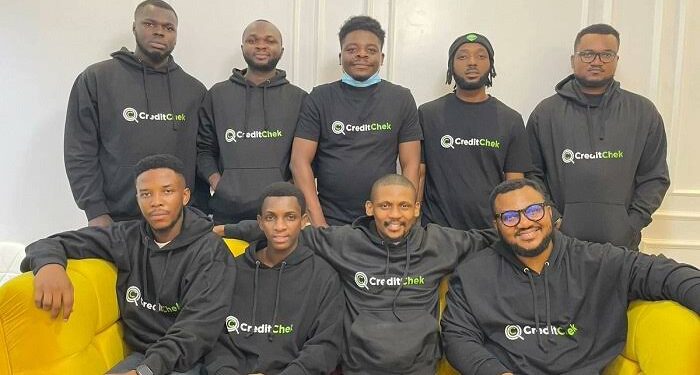The news:
CreditChek – Nigeria’s credit assessment startup has raised $240,000 in a pre-seed funding round.
According to the company, the fund raised will be used to drive its vision of becoming the most reliable credit infrastructure in Africa in the next 5 years. Also, the company intends on fostering trust between lenders and borrowers who would use the service.
The funding was led by Atom Capital with participation from Aidi Ventures, Ham Serunjogi of Chippercash, Olumide Ogunsanwo of Adamantium Fund, Damola Adegboyega of Assembly Investors, Isaac Ewaleifoh of Launch Africa Ventures, and Ogundiran Kayode.
About CreditChek:
CreditChek is a credit assessment startup aimed at building Africa’s largest data infrastructure to improve access to better financial services for Africans. The startup helps businesses and Fintechs build better products for the financially underserved by helping them gain insights to reliably assess and verify creditworthiness of consumers in Africa.
CreditChek also uses structured, user-permissioned data from multiple sources to create powerful Identity, credit and verification services that empower fintechs, banks, microfinance institutions, retail businesses and mobile money operators to build better financial products for the underserved.
What the investors had to say:
Announcing the fundraising, CreditCheck co-founder, Kingsley Ibe, said, “In April 2022, we launched our MVP in beta, testing with a few businesses and making iterations. While in Beta, we onboarded 30 businesses, processed thousands of API calls, and eventually came out of Beta in June 2021.”
“As coconut heads; we continue to be stubborn in our vision as financial inclusion advocates but flexible on our mission. Our vision is to be the most reliable credit infrastructure in Africa in the next 5 years, fostering trust between lenders and borrowers. In furtherance of that vision, we are pleased to announce that we’ve raised $240,000 in pre-seed funding led by Atom,” he added.
Explaining the role of CreditCheck in the economy and its plans to building a credit infrastructure, Ibe cited data from the National Bureau of Statistics, which showed that in 2018, financial institutions lost over $4B to chronic loan defaulters; this however propelled the startup’s vision to building a community with its startup.
In Kenya, 6% of its population have been blacklisted on Kenya’s TransUnion credit reference bureau for non-repayment of digital credit loans. Furthermore, in Nigeria, it isn’t unusual to hear of customers who take loans from 3 to 5 lenders simultaneously and then disappear into thin air. These sorts of audacious schemes and a general unwillingness of customers to pay loans continue to overwhelm lenders.
Ibe said: “This is mostly because existing credit bureaus have a high barrier to entry and are therefore inaccessible to the average Nigerian business. Most low-income consumers aren’t captured in the formal banking system; hence limited historical data on underbanked consumers”.
“So, we pivoted to building the credit assessment infrastructure for lending businesses in Africa. A platform that will enable both digital and traditional leaders to reliably verify identity and assess the creditworthiness of potential customers,” he added.

































